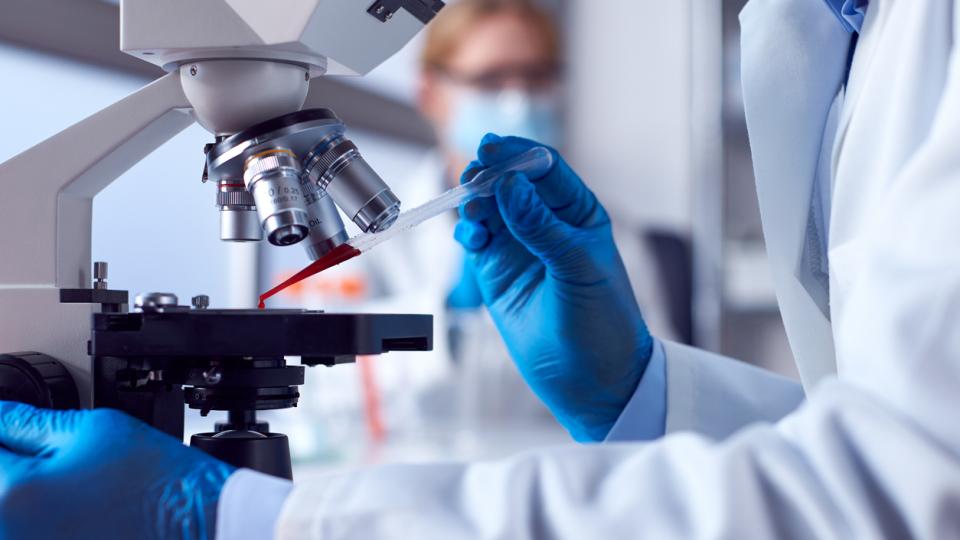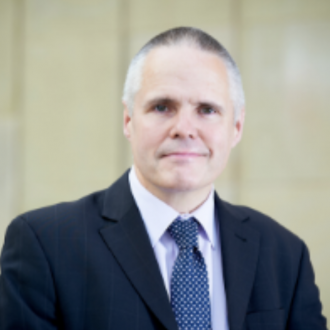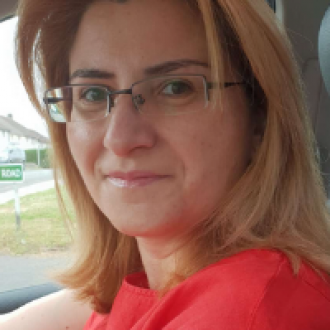- Undergraduate
Clinical Science BSc (Hons)
Overview
Why study at the University of West London?
- Ranked 30th university in the UK - The Guardian University Guide 2025
- Number 1 London university for overall student satisfaction - National Student Survey 2024**
- Best university for Student Experience and Teaching Quality in the UK - The Times and Sunday Times Good University Guide 2024
Why study this course?
Our BSc (Hons) Clinical Science degree provides a comprehensive grounding in clinical and medical sciences.
Clinical scientists are medical and healthcare professionals who research and develop techniques and equipment to help prevent, diagnose and treat illness.
As such, the aim of this course is to enable your understanding and ability to analyse the basis of human disease, diagnosis and treatment.
Key areas of study include:
- microbiology
- genetics
- haematology
- immunology
- anatomy
- physiology
- pathology
- biochemistry.
You will also develop an array of practical skills required for the diagnosis of disease. This includes learning how to communicate with other health professionals, developing analytical skills for finding patterns and unexpected outcomes in test results, and building important numeracy skills.

Select your desired study option, then pick a start date to see relevant course information:
Start date:
If your desired start date is not available, try selecting a different study option.
Why study Clinical Science with us?


What our students say…
UWL has a great community feel and I love my course. It's the place to be.




Course detail & modules
This course aims to provide an understanding of key topics in clinical science alongside the practical skills needed in modern clinical science labs, for example within the NHS.
In Year 1, you will focus on the core knowledge of basic biomedical science that underpins these areas, with increasing specialism in Years 2 and 3.
Specific subject aims include:
- Clinical biochemistry and immunology – to build the knowledge and skills needed to work in a clinical lab or similar environment where routine clinical tests are run and interpreted
- Medical Physics – to develop the knowledge and skills needed to interpret medical imaging findings including CT scans, X-rays, and MRI
- Diagnostics – to understand how the nature of disease determines the key tests used in diagnosis, with particular emphasis on biomarkers
In the final year, you will undertake a clinical research project that focuses on one of the areas from the course and is based either in the lab or on the analysis of clinical data.
This gives you the chance to work independently to produce work that contributes to our understanding of clinical science and provides an excellent grounding for those who wish to pursue a career in research.
Careers after graduation may include working as a clinical scientist (subject to appropriate further, postgraduate study), clinical research as part of a clinical trials team, drug development within the pharmaceutical industry.
There are also excellent opportunities for further study including MSc Clinical Science, PhD studentships, and postgraduate entry to medical school.
Compulsory modules
-
Cell and Microbiology
The aim of this module is to provide a comprehensive understanding of cell biology and microbiology, focusing on the structure, function, and dynamics of prokaryotic and eukaryotic cells, as well as the study of microorganisms.
You will explore various topics, including cell division, the cell as the fundamental unit of life, cell specialisation, microorganism structure and physiology, identification and classification of microorganisms, control of microorganisms, causes and pathology of common diseases, lifestyle impact on human health, investigation and diagnosis of diseases, therapeutic strategies, human life cycles and aging, and the role of stem cells in regenerative medicine.
By the end of the module, you will have acquired knowledge and skills necessary for understanding the intricate relationship between cells, microorganisms, and human health.
-
Essential Skills for Bioscientists
This module has been designed to support you in developing the core technical and transferable skills required to study, undertake research, and communicate effectively on topics in the Biosciences. You will arrive at University with a wide range of skills and proficiencies, so this module aims to support your transition and equip you with the essential skills you need at later stages of the course.
-
Fundamentals of Chemistry
The aim of this module is to provide an appropriate foundation in core concepts of physical and quantitative Chemistry for you across different disciplines including biochemistry, biomedical sciences, biological sciences, and pharmacology.
Using workshops and practical sessions, this module will deliver an integrated understanding of matter, and the connection between the structure of atoms, molecules and compounds and their physical and chemical properties (eg, bonding and energy).
It also supports you in developing quantitative skills for solving chemistry calculation problems that form the basis of many analytical methods eg, spectrophotometry, chromatography etc.
-
Fundamentals of Biochemistry and Molecular Biology
The aim of this module is to provide you with a comprehensive understanding of the key principles, concepts and terminologies of biochemistry and molecular biology. It aims to explore the structure and function of biological molecules (DNA, RNA, protein, enzymes, lipids and carbohydrates) as well as the biochemistry of processes that support life and metabolism. These concepts will be taught using lectures, tutorials, and lab practicals.
-
Genetics and Disease
This module provides knowledge and understanding of the structure of nucleic acids (DNA and RNA) and how these molecules encode the properties of cells – providing you with a basic grounding in the genetics and molecular biology underpinning human biology and health.
-
Human Anatomy and Physiology
This module will introduce you to human anatomy. You'll gain insights into the relationship between the structure and function of the individual at the system level and as a fully integrated organism. Theory will be supported by a virtual practical activity.
Compulsory modules
-
Medical Physics
In this module, you will focus on the key techniques used for therapy and diagnostics based on ionizing and non-ionizing radiation. These include the underlying science and clinical application of X-rays, computed tomography (CT), magnetic resonance imaging (MRI), and radiotherapy. You will also learn to practise effectively in partnership with other clinical specialties and the wider MDT to deliver safe and effective patient care, critically appraise and apply developments to evolve services in Medical Physics and formulate and apply strategies to resolve issues based on analysis of available information and evaluate the success of the strategy applied.
-
Clinical Biochemistry
In this module you will develop comprehensive knowledge for using biological and chemical methods to study the chemical processes that take place at the molecular level. And acquire skills and behaviours for carrying out complex analyses on specimens of body fluids and tissues, assuring the quality of laboratory medicine investigations, auditing the diagnostic and clinical use and performance of investigations, and developing new and existing tests. Specifically, you will develop advanced knowledge and skills in chemical pathology, haematology, microbiology, transfusion medicine, immunology and immunogenetics, molecular pathology (including Cytogenetics), informatics and laboratory management.
-
Infection and Immunity
This module aims to provide you with an in-depth knowledge of the current concepts of basic immunology as well as continue to build on your infection knowledge from Level 4 with respect to diseases you may encounter in the clinic.
Theoretical concepts are reinforced through laboratory practical sessions which will introduce you to diagnostic microbiological and basic immunological techniques and data analysis which are broadly used in a variety of clinical settings and scientific disciplines.
-
Haematology and Transfusion Science
This module aims to provide you with a comprehensive understanding of Haematology and Transfusion Science, encompassing the structure, function, and production of blood cells, as well as the diagnosis, treatment, and monitoring of various blood disorders.
It also aims to explore the principles and practice of haematological techniques, the preparation and use of blood components, patient blood management, the application of NPT/POCT equipment, quality assurance considerations, the impact of lifestyle on human health, human life cycles and ageing, and the emerging field of stem cells and regenerative medicine.
-
Research, Development and Leadership
This module aims to equip you with comprehensive knowledge, skills, and practical experience in research, evidence-based practice, clinical audit, innovation, and collaborative teamwork in biomedical and biosciences contexts.
-
Diagnosing Disease
In this module, you will focus on the key techniques and underpinning science for a range of diagnostic tests. It complements the Medical Physics module (which focuses on therapy and diagnostics based on ionizing and non-ionizing radiation). A range of common diseases are covered including diabetes, COPD, cancer, Alzheimer’s and Parkinson’s disease. There will be an emphasis on the use of biomarkers in disease detection.
Compulsory modules
-
Professional Issues in Clinical Science
This module aims to equip you with comprehensive knowledge, skills, and practical experience in research, evidence-based practice, clinical audit, innovation, and collaborative teamwork in clinical science contexts.
-
Clinical Genetics and Cytogenomics
The module aims to:
- Provide an overview of human genetic concepts and clinical disorders that have a genetic component. The course seeks to teach the students to apply their knowledge of the principles of human genetics to a variety of clinical problems.
- Provide firm groundings in the knowledge and practice of cytogenetics, biochemical genetics and molecular cytogenetics (such as fluorescence in situ hybridisation (FISH), microarrays) and molecular-based techniques.
-
Clinical Immunology and Cellular Pathology
The module aims to enable you to understand and gain experience of the application and delivery of a comprehensive range of cellular pathology analyses including systematic investigation of pathological specimens, applications of cyto-histopathology and reproductive science and to understand their importance in the clinical investigation of patients. In addition, building on the Year 1 module content, you will understand how knowledge of the immune system can be applied therapeutically, in clinical practice.
-
Clinical Microbiology and Infection Control
In this module you will have an in-depth knowledge of selected aspects of clinical microbiology, including public health microbiology, the laboratory investigation of a range of infectious diseases, isolation and identification of microorganisms; anti-microbial and anti-viral therapy (including drug resistance) and infection control.
-
Final Year Research Project
The 40-credit module aims to equip you to plan and produce a small-scale research project relevant to your own area of interest. You will learn to develop an appreciation of how scientific knowledge advances through research including the challenges and limitations. With the support of a supervisor, and shared discussions with other students, you will work independently to carry out a research project to completion.
Entry requirements
These can include:
- A Levels at grade B, B and C, or above
- BTEC Extended Diploma with Distinction, Merit, Merit
- Access to HE Diploma
- International Baccalaureate
- T Levels
Your Level 3 qualifications must include one science subject.
You also need GCSE English, Maths, and two sciences or double science (grade 9 - 4 / A* - C) or Level 2 equivalent.
Looking for BSc (Hons) Clinical Science with Foundation Year?
You may be eligible for a student loan to cover the cost of tuition fees, or a maintenance loan. Additional funding is available to some types of students, such as those with dependants and disabled students.
Looking for BSc (Hons) Clinical Science with Foundation Year?
You need to meet our English language requirement - a minimum of IELTS 5.5 for each of the 4 individual components (Reading, Writing, Speaking and Listening). Visit our English language requirements page for information on other English language tests we accept.
You also need academic qualifications at the same level as UK applicants. In some countries where teaching is in English, we may accept local qualifications. Check for local equivalents.
We offer pre-sessional English language courses if you do not meet these requirements.
Looking for BSc (Hons) Clinical Science with Foundation Year?
You may be eligible for a student loan to cover the cost of tuition fees, or a maintenance loan. Additional funding is available to some types of students, such as those with dependants and disabled students.
Looking for BSc (Hons) Clinical Science with Foundation Year?
Fees & funding
Please note:
- Fees for the 2026/27 academic year and onwards may be subject to Government regulation and change.
- Tuition fees are charged for each year of your course. If your course runs for two years or more, you will need to pay the fee for each academic year at the start of that year.
- If your course runs for less than two years, the cost above is for your full course and you will need to pay the full fee upfront.
- If no fee is shown above then the fees for this course are not available yet. Please check again later for updates.
Funding your studies
You may be eligible for a student loan to cover the cost of tuition fees, or a maintenance loan. Additional funding is available to some types of students, such as those with dependants and disabled students.
We offer generous bursaries and scholarships to make sure your aspirations are your only limit. In recent years, hundreds of students have received our Full-time Undergraduate Student Bursary.
View full details, including conditions and eligibility.
Please note:
- Fees for the 2026/27 academic year and onwards may be subject to Government regulation and change.
- Tuition fees are charged for each year of your course. If your course runs for two years or more, you will need to pay the fee for each academic year at the start of that year.
- If your course runs for less than two years, the cost above is for your full course and you will need to pay the full fee upfront.
- If no fee is shown above then the fees for this course are not available yet. Please check again later for updates.
International students - funding your studies
We offer scholarships for international students including International Ambassador Scholarships.
Further information about funding and financial support for international students is available from the UK Council for International Student Affairs.
Teaching staff

Professor Richard Morgan
After completing my PhD I joined the MRC National Institute for Medical Research, London, and subsequently the Hubrecht Laboratory in Utrecht to continue my studies of transcriptional control in development and cancer as a postdoctoral researcher. Subsequent academic posts included senior lectureships at St. George’s Hospital Medical School in London and the University of Surrey. In 2015 I became Professor of Molecular Oncology and Director of the Institute of Cancer Therapeutics at the University of Bradford. I joined the University of West London as Dean of Biosciences in June 2020.
My research background is principally in molecular and cell biology and I have focused on developing strategies to target the HOX / Engrailed family of homeodomain containing transcription factors in cancer. Work starting in 2004 gave rise to the currently only available antagonist of HOX function, HXR9. HXR9 has proven to be effective against a range of solid and haematological malignancies, and I have several active industrial collaborations to further develop this technology. We are also studying the potential of HOX and Engrailed transcription factors as biomarkers for the diagnosis of prostate and bladder cancer. Our work has identified the EN2 transcription factor as a diagnostic marker for prostate cancer with twice the sensitivity of the currently used marker, PSA, and a high predictive value for tumour volume. EN2 is now undergoing clinical trials at multiple, international centres.
After completing my PhD I joined the MRC National Institute for Medical Research, London, and subsequently the Hubrecht Laboratory in Utrecht to continue my studies of transcriptional control in development and cancer as a postdoctoral researcher. Subsequent academic posts included senior lectureships at St. George’s Hospital Medical School in London and the University of Surrey. In 2015 I became Professor of Molecular Oncology and Director of the Institute of Cancer Therapeutics at the University of Bradford. I joined the University of West London as Dean of Biosciences in June 2020.
My research background is principally in molecular and cell biology and I have focused on developing strategies to target the HOX / Engrailed family of homeodomain containing transcription factors in cancer. Work starting in 2004 gave rise to the currently only available antagonist of HOX function, HXR9. HXR9 has proven to be effective against a range of solid and haematological malignancies, and I have several active industrial collaborations to further develop this technology. We are also studying the potential of HOX and Engrailed transcription factors as biomarkers for the diagnosis of prostate and bladder cancer. Our work has identified the EN2 transcription factor as a diagnostic marker for prostate cancer with twice the sensitivity of the currently used marker, PSA, and a high predictive value for tumour volume. EN2 is now undergoing clinical trials at multiple, international centres.
Study & career progression

With a strong scientific background and a passion for healthcare, a career in clinical science offers endless possibilities to make a real difference in people's lives.
Potential jobs for clinical science graduates include:
- clinical trials
- pharmaceutical and biotech industries
- personal medicine
- wellbeing
- teaching
- hospitals and clinics
- healthcare companies
- audiology
- immunology
- haematology
- research.
You may also choose to further your studies with our MSc and PhD courses
How to apply

Head to the UCAS website where you can apply using:
- our institution code - W05
- the UCAS course code (below)
Want to ask us a question first? We would love to hear from you. Contact us free on:
Apply for this course
- Institution code
- W05
- UCAS code
- currentVariantData.field_p_cv_ucas_code
Next steps after making your application
We aim to make a decision on your application as quickly as we can. If we need any more information about your qualifications, we will be in touch.
In the meantime, come and visit us and find out more about what studying at UWL is like. Sign up for an open day or join a campus tour.
Visit us and see for yourself
Talk to our tutors and find out about our courses and facilities at our next open day or join a campus tour.
Our prospectus
All of our courses in one place - download now or order a hard copy.
We're here to help
Any questions about a course or studying at UWL? We're here to help - call us on 0800 036 8888 (option 2, Monday – Friday 10am-4pm) or email us on courses@uwl.ac.uk.

You can apply to us in two ways:
- on the UCAS website you will need our institution code (W05) and the UCAS course code (at the top of this page)
- directly on our website – follow the ‘apply now’ link below
Want to ask us a question first? Our dedicated international students’ team would love to hear from you.
- Ask the International Recruitment Team a question
- learn more about international student applications
- find out more about why you should study in London at the Career University.
Apply for this course
Next steps after making your application
We aim to make a decision on your application as quickly as we can. If we need any more information about your qualifications, we will be in touch.
In the meantime, come and visit us and find out more about what studying at UWL is like. Sign up for an open day or join a campus tour.
Visit us and see for yourself
Talk to our tutors and find out about our courses and facilities at our next open day or join a campus tour.
Our prospectus
All of our courses in one place - download now or order a hard copy.
We're here to help
Any questions about a course or studying at UWL? We're here to help - call us on 0800 036 8888 (option 2, Monday – Friday 10am-4pm) or email us on courses@uwl.ac.uk.
Search for courses
Student life at UWL
Important notes for applicants
Disclaimer
*Modern universities - defined as higher education institutions that were granted university status in, and subsequent to, 1992.
**The National Student Survey 2023 and 2024 - Average of answers to all questions by registered student population. Excludes specialist institutions.
Testimonials - our students or former students provided all of our testimonials - often a student from the course but sometimes another student. For example, the testimonial often comes from another UWL student when the course is new.
Optional modules - where optional modules are offered they will run subject to staff availability and viable student numbers opting to take the module.
Videos - all videos on our course pages were accurate at the time of filming. In some cases a new Course Leader has joined the University since the video was filmed.
Availability of placements - if you choose a course with placement/internship route we would like to advise you that if a placement/internship opportunity does not arise when you are expected to undertake the placement then the University will automatically transfer you to the non-internship route, this is to ensure you are still successful in being awarded a degree.













